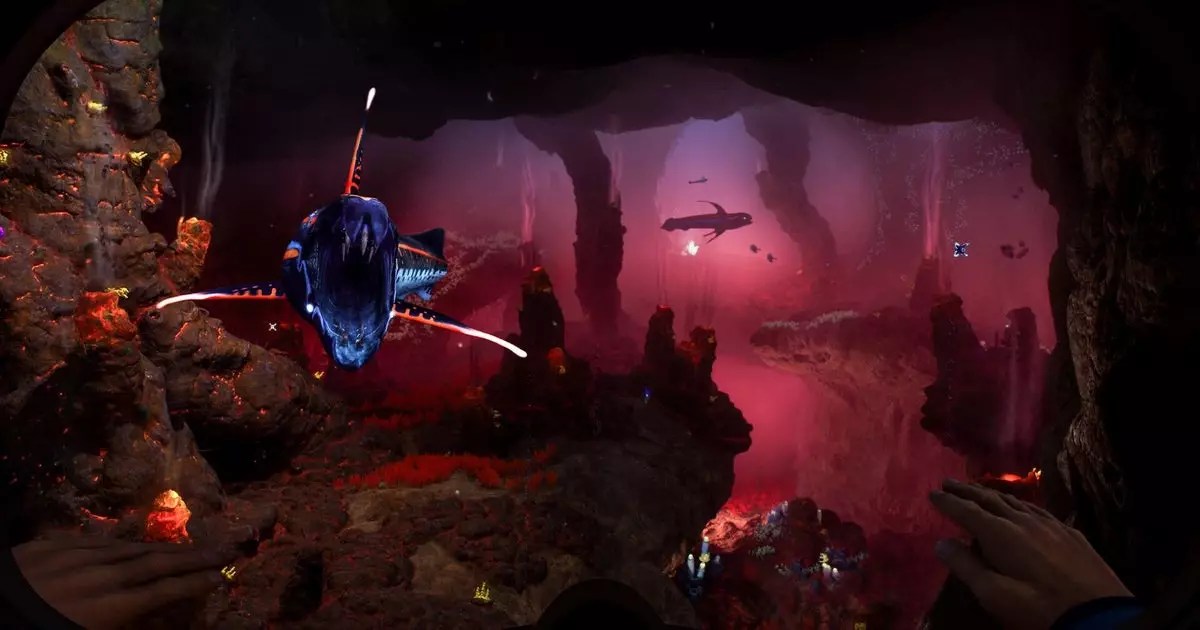The postponement of Subnautica 2 into 2026 marks more than just a scheduling hiccup; it represents a significant upheaval within the gaming industry’s creative and corporate landscapes. Fans, having eagerly anticipated the sequel, now face an extended wait that dampens excitement but also exposes the murky dealings behind the scenes. From the outset, it’s clear this delay is not merely about polishing gameplay or fixing bugs but is rooted in deeper corporate maneuvers driven by financial motives and power struggles.
The original team at Unknown Worlds had believed their game was ready for launch. Charlie Cleveland’s candid assertion that the game was prepared for early access suggests that the developers’ perception starkly contrasts with Krafton’s strategic recalibration. This disconnect hints at a fundamental misalignment of priorities—the developers’ creative confidence clashes with the publisher’s financial gambit, leading to tensions that could have long-term repercussions for trust and morale within the studio. The delay, therefore, becomes a symbol of broken trust, eroding the goodwill built over years of development.
Crucially, the decision to delay appears to be influenced by financial considerations—specifically, Krafton’s intent to withhold a lucrative $250 million bonus initially meant to incentivize staff. This bonus, once an attractive carrot for motivation, now threatens to be extinguished by a strategic delay. The company’s move to extend the game’s release window into 2026 seems motivated by an intent to avoid disbursing this substantial reward, raising alarming ethical questions about corporate priorities. Largely driven by profit motive, Krafton’s actions reveal a troubling willingness to manipulate project timelines to serve fiscal interests, possibly at the expense of creative integrity and employee well-being.
Adding fuel to the fire is the drastic change in leadership at Unknown Worlds. The ousting of senior executives—including co-founder Charlie Cleveland—signals an internal power struggle worsened by the delay’s fallout. Replacing Cleveland and others with Striking Distance’s CEO Steve Papoutsis indicates a shift toward centralized control, potentially sidelining original voices that championed the game’s readiness. Cleveland’s poignant admission that he felt shocked and disappointed underscores the emotional toll this upheaval has taken on the studio’s founding team, who risk seeing the fruits of their labor pushed aside by corporate interests beyond their control.
The public response from Cleveland emphasizes a broader narrative of betrayal and frustration. His assertion that the game is technically “ready for early access” juxtaposed with Krafton’s vague insistence on “delivering the right game at the right time” underscores a strategic divergence—one that suggests financial motives are driving the delay more than developmental needs. Cleveland’s candid critique reveals a frustrating pattern seen repeatedly in the industry: creative teams are often powerless in the face of corporate greed, with publishers leveraging their financial leverage to impose unfavorable changes, even at the expense of quality or developer morale.
The industry’s power dynamics are laid bare through this controversy. Krafton’s record profits and generous bonuses for top executives contrast sharply with the potential withholding of bonuses from developers. This disparity underscores a harsh reality—profit-driven publishers often prioritize financial engineering over the passion and dedication of their creative teams. The strategic delay, possibly designed to avoid payouts, starkly illustrates how corporate interests can override the creative process—a phenomenon that continues to haunt AAA game development.
Furthermore, the broader implications of this delay extend beyond just one game. Subnautica 2’s status as the second most wishlisted game on Steam hints at immense potential and a passionate community awaiting its release. The delay represents not only a setback for fans but also serves as a cautionary tale for the industry: power imbalances, if left unchecked, threaten the integrity of creative projects and the morale of those who bring them to life. This controversy underscores the importance of transparency and integrity in corporate-developer relationships, which often get overshadowed by the bottom line.
In an industry driven by fierce competition and relentless deadlines, conflicts like this reveal the fragility of the creative process and the extent to which financial considerations influence decisions. As the industry navigates this complex landscape, the Subnautica 2 delay offers a stark reminder that behind every blockbuster is a web of corporate interests that can shape the destiny of a game—and the lives of its creators—in profound and sometimes unjust ways.


Leave a Reply